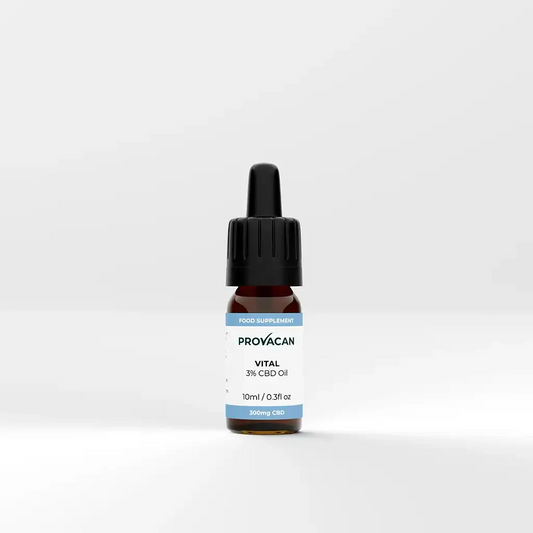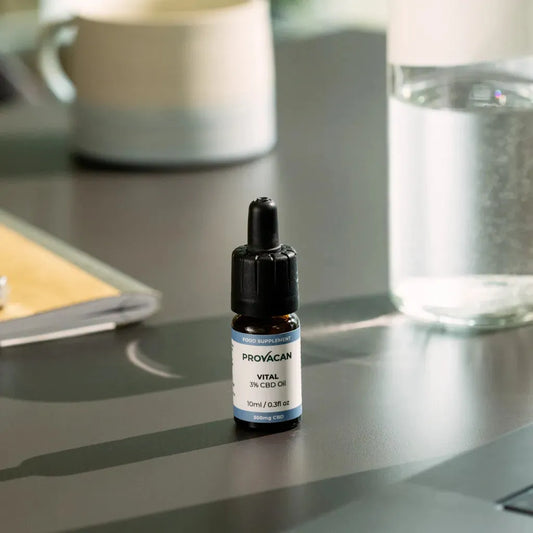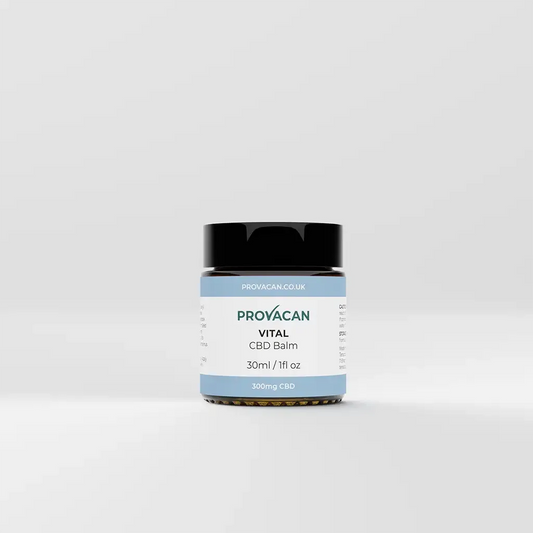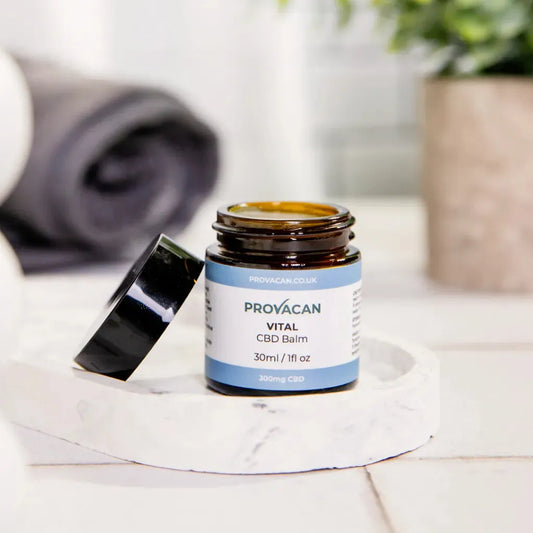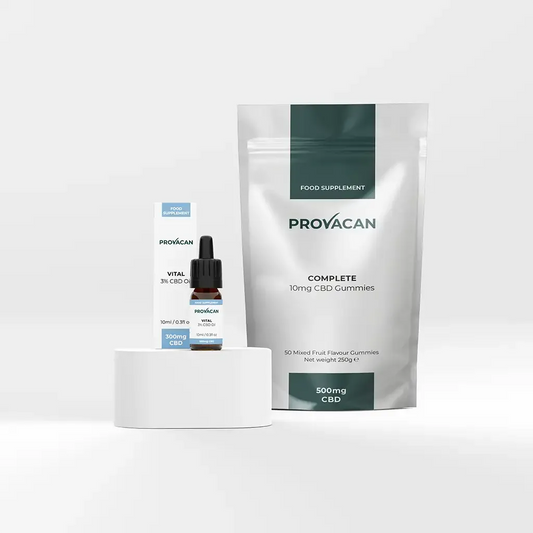Key Takeaways:
- HHC vs. THC: Understand the key differences between HHC (Hexahydrocannabinol) and THC (Tetrahydrocannabinol), including their potency and psychoactive effects.
- Chemical Structure: Note that HHC has a cyclohexane ring, setting it apart from THC and potentially influencing its interaction with the endocannabinoid system.
- Legal Status and Health Benefits: Be mindful of the legalities surrounding THC and the potential therapeutic properties of both HHC and THC, such as pain relief and anti-inflammatory effects, while recognizing the need for further research.
THC (tetrahydrocannabinol) is undoubtedly one of the most well-known compounds found in the cannabis plant. However, in recent years, a new player has emerged in the cannabinoid scene – HHC (hexahydrocannabinol). Both THC and HHC have been garnering attention for their potential therapeutic benefits and psychoactive properties, but what exactly sets these two compounds apart?
In this comprehensive guide, us cannabidiol experts at Provacan will uncover the differences between HHC and THC, exploring their chemical structures, effects on the body, legal status, and potential applications in the wellness industry. Understanding the distinctions between these cannabinoids is crucial for consumers looking to make informed choices about their cannabinoid intake.
An Overview Of HHC And THC
THC is arguably the most well-known cannabinoid, largely due to its mind-altering effects. It is responsible for the "high" that people experience when consuming cannabis products. THC interacts with the endocannabinoid system in the body, specifically the CB1 receptors in the brain, leading to various effects such as euphoria, relaxation, and altered sensory perception.
On the other hand, HHC is a lesser-known cannabinoid that has been gaining attention for its unique properties. HHC is structurally similar to THC but with a slightly different molecular arrangement. This difference can result in varying effects on the body compared to THC. Some users report that HHC provides a milder psychoactive experience with less intense euphoria but still offers relaxation and relief.
Key Differences
One of the significant differences between HHC and THC lies in their legality and availability. While THC is a well-regulated compound with legal restrictions in many regions, HHC may fall into a legal gray area due to its novelty and evolving regulations.
Additionally, the potency and dosage requirements of HHC versus THC may differ, impacting the overall user experience. As research on HHC continues to develop, more insights into its potential benefits and risks will likely emerge, shedding light on how it compares to THC in terms of therapeutic applications.
The Science Behind HHC vs. THC
Chemical Structure
HHC and THC belong to the same family of compounds known as cannabinoids but differ in their chemical structures. HHC has a cyclohexane ring, while THC has a phenol ring, leading to variations in how they interact with the endocannabinoid system.
Psychoactive Effects
While THC is widely recognized for its psychoactive properties, causing the "high" commonly associated with cannabis use, research suggests that HHC may have a more moderate psychoactive effect. Studies have shown that HHC could offer similar benefits to THC but with potentially reduced intensity.
Therapeutic Potential
Both HHC and THC have shown promise in providing therapeutic benefits, including pain relief, anti-inflammatory effects, and potential anti-anxiety properties. However, more research is needed to fully understand the unique therapeutic potential of HHC compared to THC.
Legal Status Of HHC Compared To THC
THC is the well-known psychoactive compound found in cannabis that produces the "high" effect. In the UK, THC is classified as a controlled substance under the Misuse of Drugs Act 1971 due to its psychoactive properties.
On the other hand, HHC is a lesser-known analog of THC that is derived from hemp. While HHC is structurally similar to THC, its psychoactive effects are said to be milder. This difference in potency has led to varying legal classifications of HHC compared to THC in the UK.
As of now, there is no specific legislation addressing HHC in the UK. However, products containing HHC are subject to the Misuse of Drugs Act if they contain THC above the legal limit of 0.2%. This means that HHC products with high THC content are likely to be considered illegal in the UK.
It is important for consumers to be aware of the legal status of HHC and THC before purchasing or using any related products. As regulations may change, staying informed about the latest laws and guidelines is crucial to ensure compliance with UK drug laws.
Therapeutic Benefits Of HHC And THC
Both compounds interact with the endocannabinoid system in the body, which plays a crucial role in regulating various physiological processes.
THC is well-known for its psychoactive properties, producing the "high" often associated with cannabis use. However, THC also offers a range of therapeutic benefits, including pain relief, reduction of nausea and vomiting, and appetite stimulation. It is commonly used to help manage conditions like chronic pain, muscle spasms, and chemotherapy side effects.
While research on HHC is still limited compared to THC, initial studies suggest that it may offer similar benefits with a more subdued psychoactive effect. HHC could potentially provide pain relief, anti-inflammatory properties, and mood enhancement without the intense high associated with THC.
Both HHC and THC have shown promise in helping alleviate symptoms associated with various medical conditions, making them valuable options for individuals seeking natural alternatives to traditional medications. As research continues to explore the therapeutic potential of these cannabinoids, more insights into their specific benefits and applications are expected to emerge.
Individual responses to HHC and THC may vary, and consulting with a healthcare professional before incorporating these compounds into your wellness regimen is recommended to ensure safe and effective use.
Types Of Products Containing HHC And THC
Both HHC and THC can be found in a range of cannabis products, each offering unique ways to experience the benefits of these cannabinoids.
THC-dominant products, such as edibles, tinctures, and vape cartridges, are popular choices for individuals seeking the psychoactive effects associated with THC. These products come in a variety of strengths and formulations, providing options for those looking for a potent high or a milder experience.
HHC products are emerging in the market, including oils, capsules, and topicals, offering a way to explore the benefits of this cannabinoid without experiencing the intense high often associated with THC.
Hybrid products containing both HHC and THC are also available, providing a balanced approach for individuals who want to harness the combined effects of these cannabinoids. These products can offer a more tailored experience, allowing users to customize their cannabinoid intake based on their preferences and wellness goals.
Read also:
Frequently Asked Questions on HHC vs. THC
What is HHC?
Hexahydrocannabinol (HHC) is a hydrogenated form of tetrahydrocannabinol (THC), the psychoactive compound found in cannabis. Through a process called hydrogenation, hydrogen atoms are added to THC, converting it into HHC. This process can alter its potency, stability, and effects.
What is THC?
Tetrahydrocannabinol (THC) is the primary psychoactive compound found in cannabis plants, responsible for the "high" associated with marijuana use. It interacts with the body's endocannabinoid system, particularly the CB1 and CB2 receptors, which affects mood, perception, and various physiological processes.
How is HHC synthesized?
HHC is synthesized through a chemical process called hydrogenation. In this process, THC molecules are exposed to hydrogen atoms in the presence of a catalyst, typically palladium or nickel. This addition of hydrogen atoms converts THC into HHC, altering its molecular structure and potentially its effects on the body.
How is HHC different from THC?
HHC differs from THC in its chemical structure due to the process of hydrogenation. This structural difference may affect the way HHC interacts with the body's endocannabinoid system, potentially leading to variations in its psychoactive effects, stability under various conditions, and how it is metabolized by the body.
Is HHC found naturally in cannabis?
HHC occurs in very small quantities in cannabis plants. However, the concentrations are too low for practical extraction and usage. The HHC available in the market is primarily produced synthetically or semi-synthetically from THC through the hydrogenation process.
What are the effects of HHC compared to THC?
The effects of HHC can be similar to THC, including feelings of euphoria, altered perception, and relaxation. However, individual experiences with HHC might vary, with some users reporting it to be less potent than THC, while others note a comparable or different type of psychoactive experience.
Is HHC legal where THC is not?
The legal status of HHC in jurisdictions where THC is illegal remains a complex issue. Since HHC is not explicitly listed in many controlled substances acts, it might initially fall into a legal gray area. However, laws are rapidly evolving, and the legal status of HHC can vary significantly by country, state, and local jurisdiction.
Can HHC cause a high similar to THC?
Yes, HHC can cause a high similar to THC. Many users report psychoactive effects including euphoria and altered sensory perception. However, the intensity and quality of the high might differ due to HHC's distinct chemical structure and how the individual's body metabolizes it.
How does the potency of HHC compare to THC?
The potency of HHC can vary, but it is generally considered to be slightly less potent than THC. The exact difference in potency can depend on numerous factors, including the specific HHC isomer used, the individual’s metabolism, and their tolerance to cannabinoids.
Are there any benefits to using HHC over THC?
Some potential benefits of using HHC over THC might include reduced legal restrictions, depending on your jurisdiction, and possibly a different spectrum of psychoactive effects that some users might prefer. Also, HHC is reported to be more stable than THC, leading to a longer shelf life and potentially less degradation when exposed to air and light.
Sources:
- Grinspoon, P. (2021). The Use of Cannabis and Cannabinoids in Treating Symptoms of Multiple Sclerosis: a Systematic Review of Reviews. Current Neurology and Neuroscience Reports, 21(8), 33.
- Johnson, J. R., Burnell-Nugent, M., Lossignol, D., Ganae-Motan, E. D., Potts, R., & Fallon, M. T. (2010). Multicenter, double-blind, randomized, placebo-controlled, parallel-group study of the efficacy, safety, and tolerability of THC:CBD extract and THC extract in patients with intractable cancer-related pain. Journal of Pain and Symptom Management, 39(2), 167-179.
- Russo, E. B. (2011). Taming THC: potential cannabis synergy and phytocannabinoid-terpenoid entourage effects. British Journal of Pharmacology, 163(7), 1344-1364.
- Schubart, C. D., Sommer, I. E., van Gastel, W. A., Goetgebuer, R. L., Kahn, R. S., & Boks, M. P. (2011). Cannabis with high cannabidiol content is associated with fewer psychotic experiences. Schizophrenia Research, 130(1-3), 216-221.
- Volkow, N. D., Baler, R. D., Compton, W. M., & Weiss, S. R. (2014). Adverse health effects of marijuana use. New England Journal of Medicine, 370(23), 2219-2227.
- Whiting, P. F., Wolff, R. F., Deshpande, S., Di Nisio, M., Duffy, S., Hernandez, A. V., … & Kleijnen, J. (2015). Cannabinoids for medical use: A systematic review and meta-analysis. JAMA, 313(24), 2456-2473.




